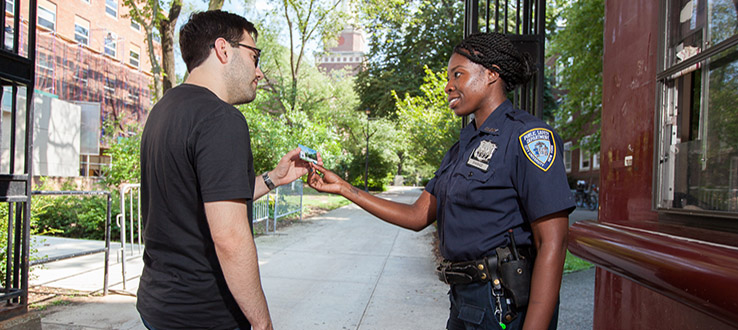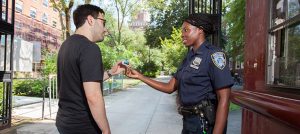

Website
Last December, the Public Safety Department at Brooklyn College released its annual security report to document campus crimes and policies. As most of BC continues learning remotely, safety concerns have shifted from in-person to online.
In the past year, Public Safety has continued to receive reports of incidents and offenses from BC students and faculty. Most report filings have been of Zoom “bombings,” where uninvited participants have disrupted sessions with hateful images and languages.
“They’re being investigated,” Donald Wenz, Chief of Public Safety, told the Vanguard. “Just recently, just as of Friday, the University is now taking a more active approach into violations of Zoom protocol and are investigating possible hate crimes from here on out.”
According to its 2020 report, BC had two hate crimes from 2017 to 2019 – race intimidation and offensive religious graffiti. If CUNY implements its policy in considering Zoombombs as hate crimes, it would be following the New York Penal Law Section 485 that finds offenses “motivated by the perpetrator’s bias or attitude against an individual victim or group” as bias crimes.
“Any crime, if it seems a hate crime, even if the crime itself may not be a Clery reportable crime, we’ll still report it as a hate crime,” said Wenz. Under the Clery Act, a law that intends to foster safety on college grounds, reportable hate crimes, including “cyber intimidation,” must have occurred on campus, BC-owned and controlled buildings, or public property adjacent to the campus.
“I’m assuming I wouldn’t see anyone coming in half-naked with a gun on-campus. I hope I wouldn’t, but at the moment, I didn’t encounter that,” said Aharon Grama, USG Chief of Staff and USS Vice-Chair for Tech Fee Affairs, when recalling one of his Zoombombing experiences. “But online, you do encounter that.”
To Grama, the solution to Zoombombings comes from bringing more awareness to faculty on how to utilize their virtual platforms.
“You’re going to solve everything if everybody knows how to lock a meeting once everyone joins or to enable a waiting room or kick out people,” Grama said. “Hopefully, if more faculty know how to do those stuff, then we solve the problem from its root.”
The most frequent on-campus crimes noted in the report are drug abuse violation referrals, with three incidents occurring in 2018 and two in 2019. Most cases involved marijuana.
“While we would love the number to be zero, the extremely low number of these cases are in the single digits,” wrote Ron Jackson, Vice President of Student Affairs, in an email to the Vanguard. Once a drug abuse violation referral is reported to Public Safety, those involved are referred to Student Affairs for counseling. Students are usually given disciplinary probation and a reflective task such as drug awareness training for drug violations.
“We have no jurisdiction to control what students do off-campus, but at the end of the day, the use of marijuana and other drugs is prohibited on campus property, per the CUNY Drug and Alcohol Policy,” wrote Jackson.
